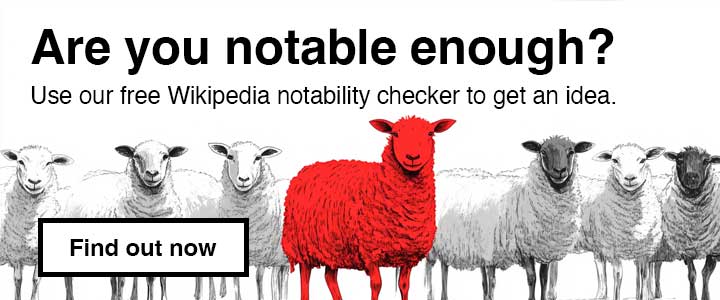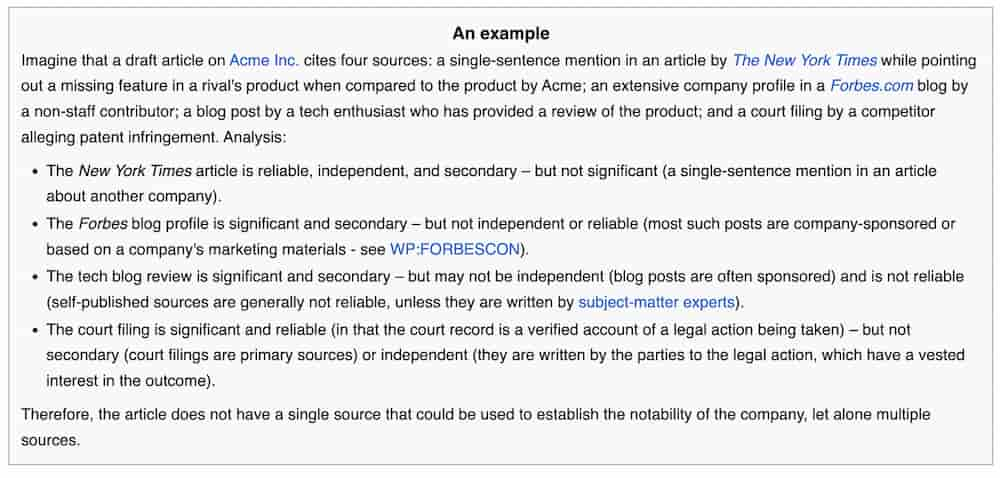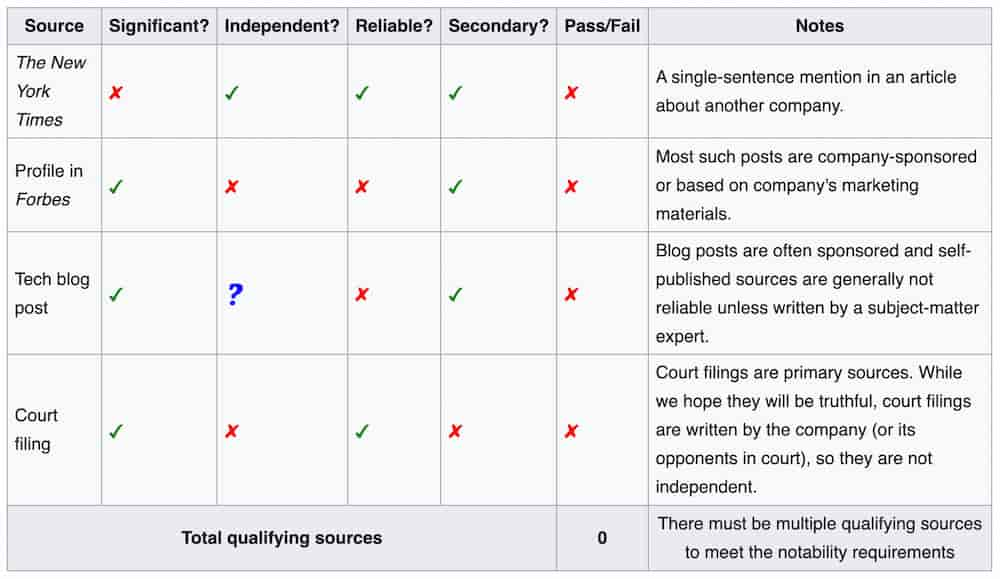Why Crypto and Blockchain Struggle on Wikipedia

Cryptocurrency and blockchain have a tough time on Wikipedia. Wikipedia isn’t just fussy—it operates based on policies rooted in traditional credibility. It favors established newspapers, academic journals, and recognized industry outlets to determine what’s notable. Unfortunately, crypto and blockchain projects typically don’t slot easily into these traditional categories. Adding to the challenge: crypto’s reputation issues and widespread skepticism among Wikipedia’s editing community. But here’s the good news—by better understanding how Wikipedia operates and why these hurdles exist, you can improve your chances of successfully navigating the system.
If you’ve checked out our other guide, you should already have the basics about Wikipedia’s core policies—things like verifiability, neutrality, and notability. Now let’s take a deeper look at why those are especially problematic for crypto, and more importantly, how you can proactively handle them. Whether you’re in charge of brand management at a blockchain startup or you’re simply an advocate aiming to improve public perception, you’re about to gain insight into a process that’s both challenging and necessary.
Main Points
Wikipedia and crypto: an uncomfortable fit. Think of Wikipedia as an experienced librarian—it trusts proven, authoritative volumes rather than glossy brochures about the latest hot trend. Crypto and blockchain thrive on innovation and niche interest, which makes establishing credibility challenging when the platform emphasizes reliability, neutrality, and established sources.
Industry reputation: hard to shake. High-profile crypto controversies—Mt. Gox, ICO scams, extreme market volatility—have left lasting negative impressions. As a result, Wikipedia’s volunteer editors tend to view new blockchain projects through a skeptical lens, lumping legitimate newcomers alongside those with questionable credibility.
Keeping pace is tough. Blockchain evolves incredibly fast, often moving quicker than mainstream media can document. As a result, Wikipedia struggles to maintain current entries about the latest advancements. A promising DeFi project gaining ground this month could pivot entirely by next quarter, leaving editors wary about longevity and relevance.
Bias—a human trait, not just a crypto issue. Wikipedia editors—being human—have biases, especially when evaluating controversial topics. Crypto is frequently at the center of these neutrality debates, often resulting in standoffs or outright deletion of entries.
Proactively bridging the gap. Understanding Wikipedia’s guidelines (such as those detailed in our Ultimate Guide) allows crypto professionals to adapt their approach accordingly. Recognizing what qualifies as notable—and how to properly verify your points—can significantly improve how your project fares on the platform.
Struggles of Crypto and Blockchain on Wikipedia
Perception and Credibility Issues
The widespread association of crypto with incidents like the collapse of Mt. Gox in 2014 and various ICO scams in 2017 has created deep-rooted skepticism. Even if your project is entirely above board, it faces an uphill battle to shake off the industry’s overall image of risk and volatility. Wikipedia’s notability standards require coverage by reputable, established sources. This places blockchain startups at a disadvantage from the outset, since high-quality coverage in mainstream media outlets or industry journals can be tough to secure. We’ve found that even seemingly reputable crypto and blockchain sources are not acceptable to many editors.

For example, many legitimate crypto projects initially gain visibility primarily within niche blogs, subreddits, or crypto-specific forums—sites that Wikipedia does not consider adequate sources. While these platforms may help spark enthusiasm, Wikipedia’s guidelines emphasize more conventional channels like the Wall Street Journal, New York Times, Reuters, or (some) industry-specific journals to validate claims and facts.

In fact, just having those reputable industry journals is not usually enough to earn a Wikipedia article; for crypto and blockchain Wikipedia pages, there just needs to be more mainstream coverage.

On top of that, many mainstream publications still hesitate to fully cover crypto due to industry volatility, complex technical details, or simply a lack of expert journalists on staff. This leaves even well-managed crypto projects locked out of Wikipedia’s notability requirements due to a lack of verifiable secondary sources.
Thus, the path to overcoming credibility hurdles isn’t just creating a solid Wikipedia page. It involves building credibility proactively—securing reliable media coverage before even attempting an entry.
Investing in transparent, informative, mainstream media relationships that publish level-headed information about your company is worth the investment before you try for a Wikipedia article.
The Gatekeepers: When Powerful Wikipedia Editors Oppose Crypto
One of the lesser-known challenges blockchain and crypto firms face on Wikipedia is not just policy, but people—specifically, powerful volunteer editors with strong anti-crypto biases. Maybe they lost money in crypto, maybe their mother did. For whatever reason, these editors tend to apply an unusual amount of rigor to Wikipedia articles about crypto and blockchain.
While Wikipedia strives for neutrality, it’s an open platform governed by a self-regulating community, and some long-time editors with strong track records and major accolades hold significant influence. So much so that it is close to futile to argue with them, even when you know you are right. When those individuals are personally skeptical or outright hostile toward the crypto industry, their biases can manifest in editorial decisions that seem less about policy and more about personal agenda.
These editors often argue that crypto-related topics fail to meet Wikipedia’s notability and verifiability guidelines, but in practice, their standards are sometimes applied differently than would be for other industries. For example, sources that would be acceptable in other industries are dismissed, and entire articles are nominated for deletion, often citing “promotion” or “lack of reliable secondary sources”—even when reputable media coverage exists.
Some will even monitor and revert every attempt to update or improve blockchain-related pages, regardless of neutrality or quality, effectively gatekeeping entire sectors from being accurately represented.
This editor-driven resistance isn’t officially endorsed by Wikipedia, but its effects are real. For startups and even well-known blockchain projects, being shut out of Wikipedia can mean losing a vital touchpoint for credibility, visibility, and trust.
The Trajectory of the Article is Important
You’ll want an article before something goes wrong.
If a blockchain or cryptocurrency company does not have a Wikipedia article, and something goes wrong, an article could be created by unfriendly people. It is ironic that a company may not have had the notability needed to earn a Wikipedia page, but a misstep generates overwhelming bad press that is then used as the basis of an article.
The trajectory of the article will stem from the problem, not the facts about the company. When this happens, it is difficult to turn the article around. Wikipedia editors tend to frown on good news on a bad page; they call it whitewashing, even when it’s just other editors trying to bring neutrality to what is effectively a hit-piece. It’s best if an article is created before any problems occur because if an article already exists, the bad news will be a sub-section, and not dominate the article.
Conclusion
Moving fast and breaking things is a great way to innovate at times, but the negativity that is generated is amplified by some editors on Wikipedia.
This challenge isn’t just about winning a slot on one platform; it’s about owning your industry’s narrative. Blockchain projects really need to proactively build trust, credibility, and respect across broader media landscapes—not just crypto-specific forums. But the nature of the platform makes this tough a lot of the time. Blockchain and crypto pages can be developed on Wikipedia, but notability and references must usually be stronger than for other industries. Relying on industry publications doesn’t work with crypto. You can use them, but only as secondary sources.
To win the crypto game on Wikipedia, you’ll need powerful mainstream press that is more than just a passing mention.
Tags: Wikipedia, Wikipedia Writing.
